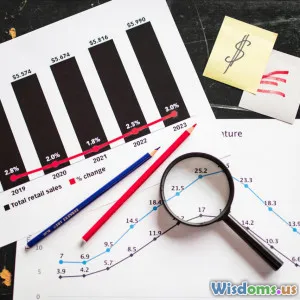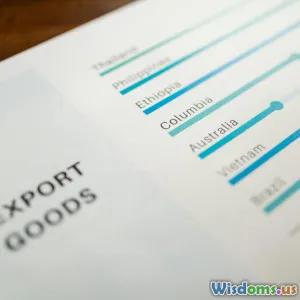
Navigating Economic Uncertainty in Investing
5 min read Explore effective strategies for investing during economic uncertainty to safeguard your assets and maximize returns. (0 Reviews)
Navigating Economic Uncertainty in Investing
In today's volatile economic landscape, investors face a myriad of challenges that can significantly impact their portfolios. Economic uncertainty can stem from various factors, including geopolitical tensions, fluctuating market conditions, and unexpected global events. This article aims to equip you with practical strategies to navigate these turbulent times effectively.
Understanding Economic Uncertainty
Before diving into investment strategies, it's essential to grasp what economic uncertainty entails. This term refers to the unpredictability surrounding economic conditions that can affect market performance. Factors contributing to this uncertainty may include:
- Inflation Rates: Rising prices can erode purchasing power and affect consumer spending.
- Interest Rates: Changes in rates can influence borrowing costs and investment returns.
- Market Volatility: Sudden market fluctuations can lead to panic selling or buying.
- Geopolitical Events: Political instability or conflicts can disrupt global markets.
Understanding these factors helps investors make informed decisions and mitigate risks.
Key Strategies for Investing in Uncertain Times
1. Diversification
Diversification is a fundamental principle of investing that becomes even more crucial during economic uncertainty. By spreading investments across various asset classes (stocks, bonds, real estate, commodities), you can reduce the impact of a poor-performing asset on your overall portfolio. For example, while equities may suffer during a recession, bonds or real estate might hold steady or appreciate in value.
2. Focus on Quality Investments
Investors should lean towards high-quality investments, particularly during economic downturns. Companies with strong balance sheets, consistent cash flow, and a robust competitive edge are likely to weather economic storms better than their peers. Look for established firms with strong track records of performance, especially those that pay dividends, as these can provide a cushion during market fluctuations.
3. Consider Defensive Stocks
Defensive stocks are shares of companies that tend to remain stable during economic downturns. These include sectors such as utilities, healthcare, and consumer staples—industries that provide essential goods and services regardless of economic conditions. Investing in these sectors can provide more stability to your portfolio during uncertain times.
4. Stay Informed and Adaptable
In an ever-changing economic environment, staying informed is paramount. Regularly review economic indicators, market trends, and news that could affect your investments. Being adaptable allows you to pivot your strategy as needed, whether that means reallocating assets or adjusting your investment horizon.
5. Maintain a Long-Term Perspective
While it may be tempting to react to short-term market fluctuations, maintaining a long-term investment perspective is crucial. Historically, markets have rebounded from downturns, and those who stay the course often reap the benefits. Consider dollar-cost averaging, where you invest a fixed amount regularly, which can minimize the impact of volatility over time.
Conclusion
Investing during periods of economic uncertainty can be daunting, but by employing the right strategies, you can safeguard your assets and position yourself for future growth. Diversification, focusing on quality investments, and maintaining a long-term perspective are key to navigating these challenges. Remember, while uncertainty is a constant in the investing world, your approach can make all the difference in achieving financial success.
By staying informed and adapting your strategy, you can not only survive but thrive in uncertain economic times.
Rate the Post
User Reviews
Popular Posts



















